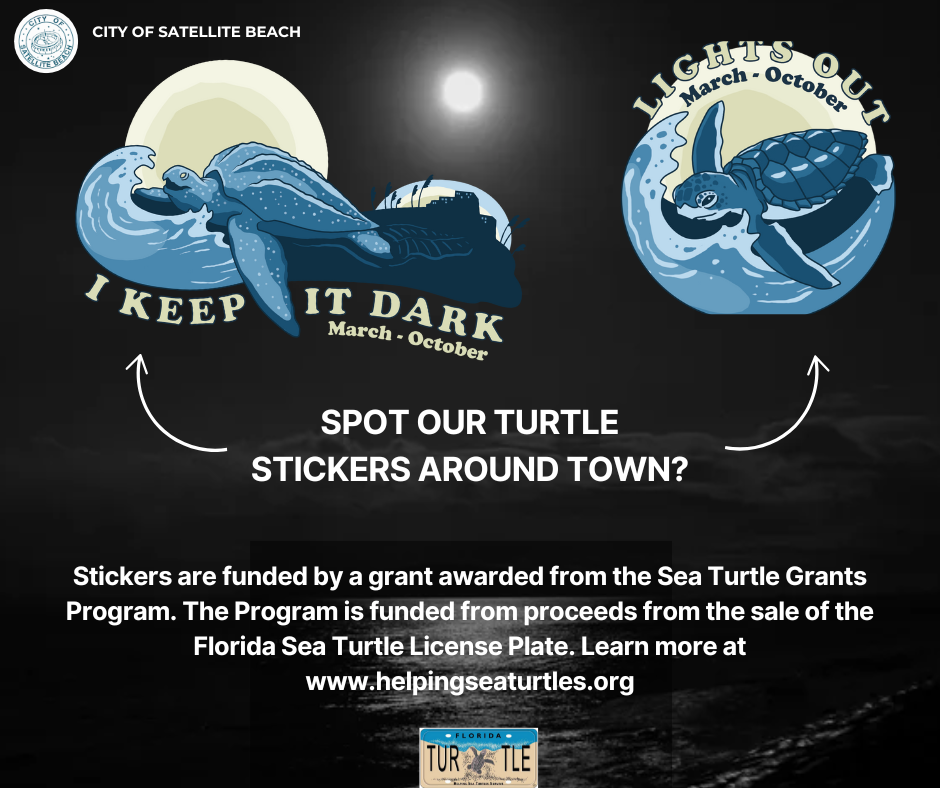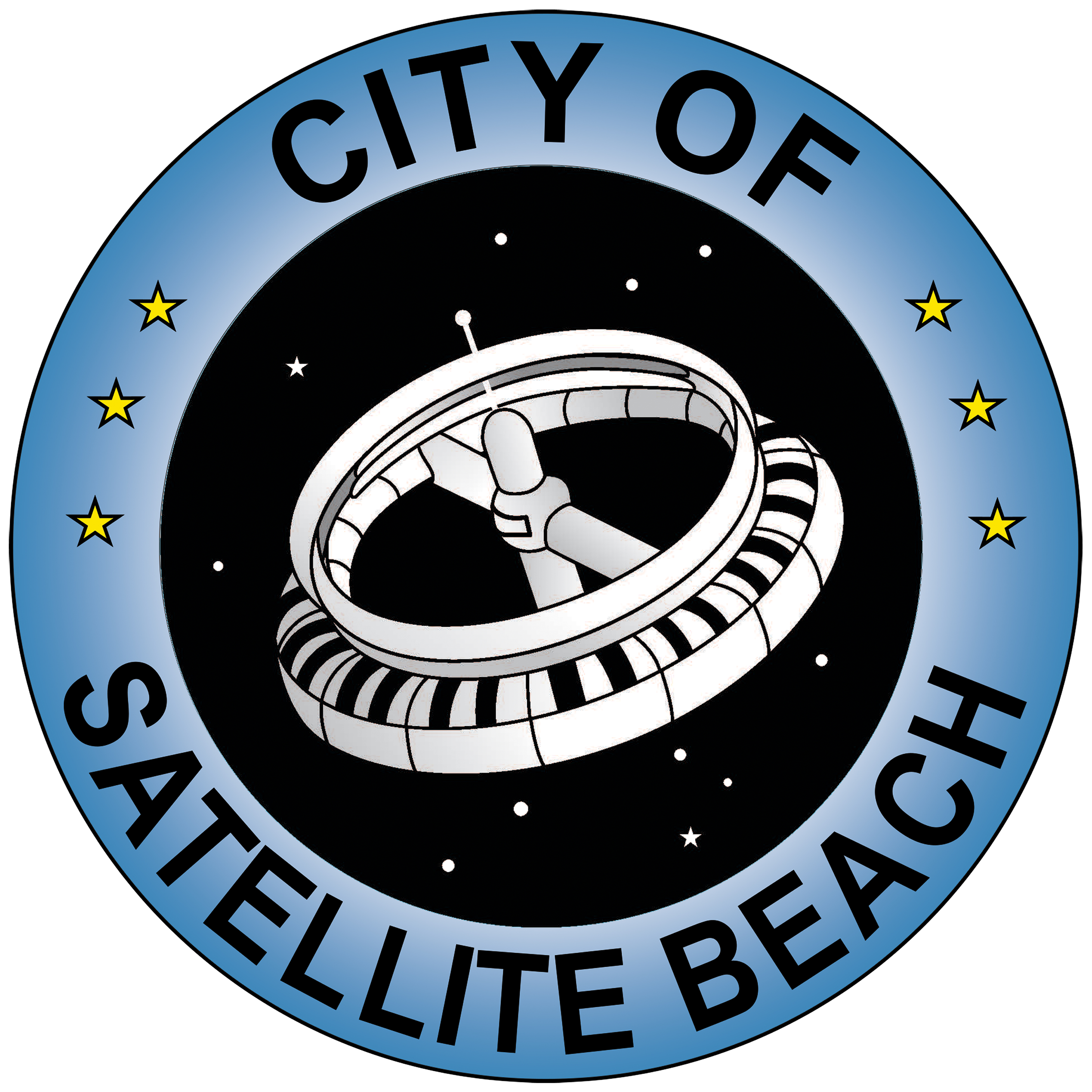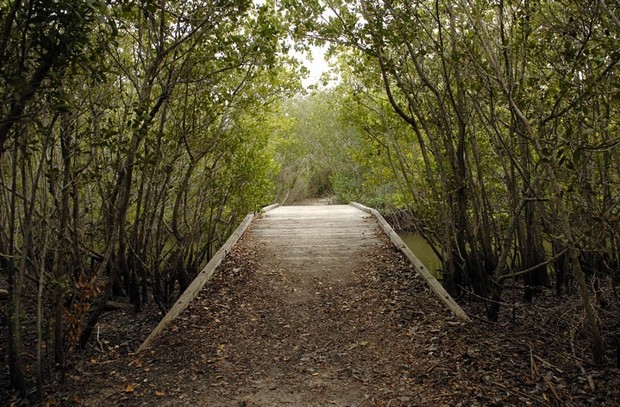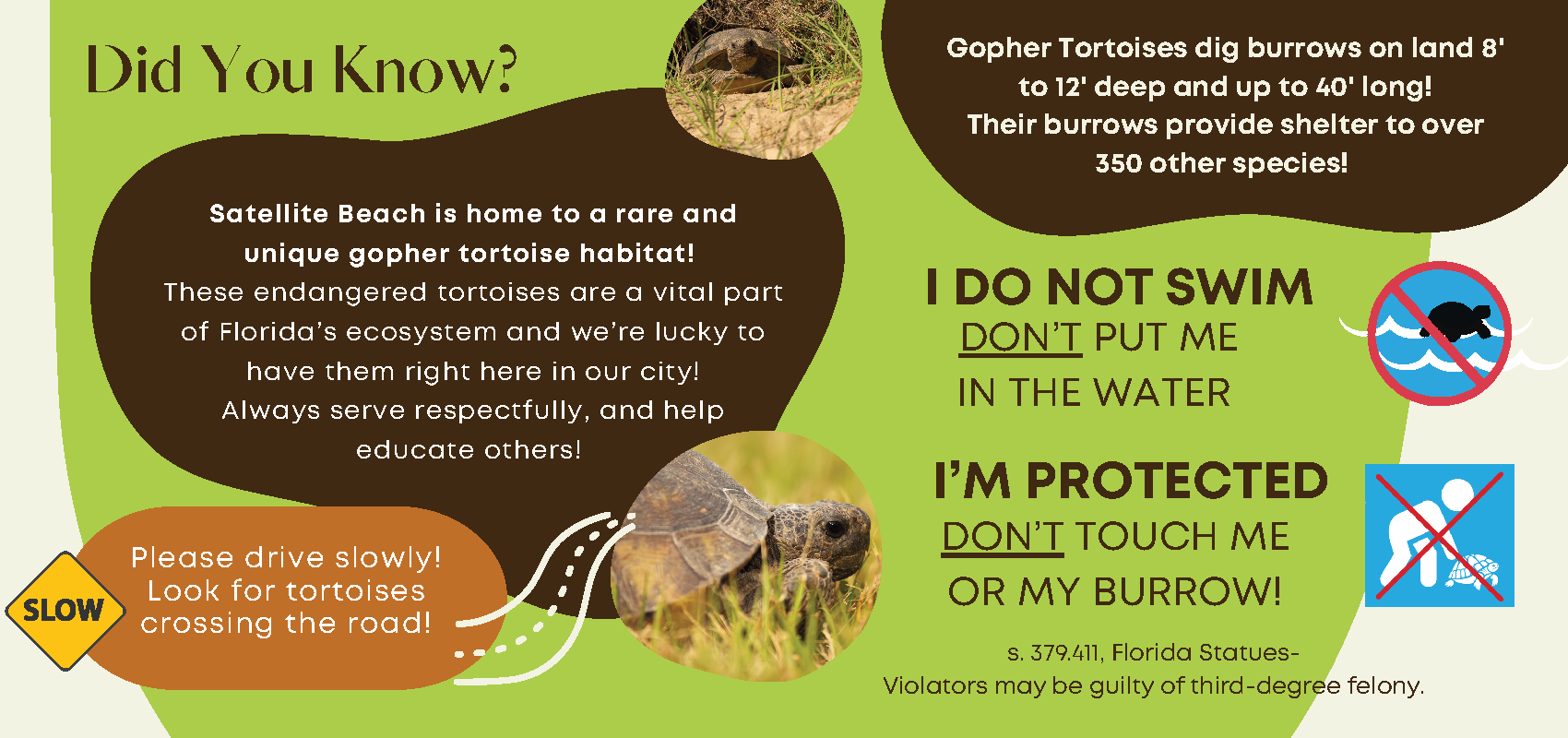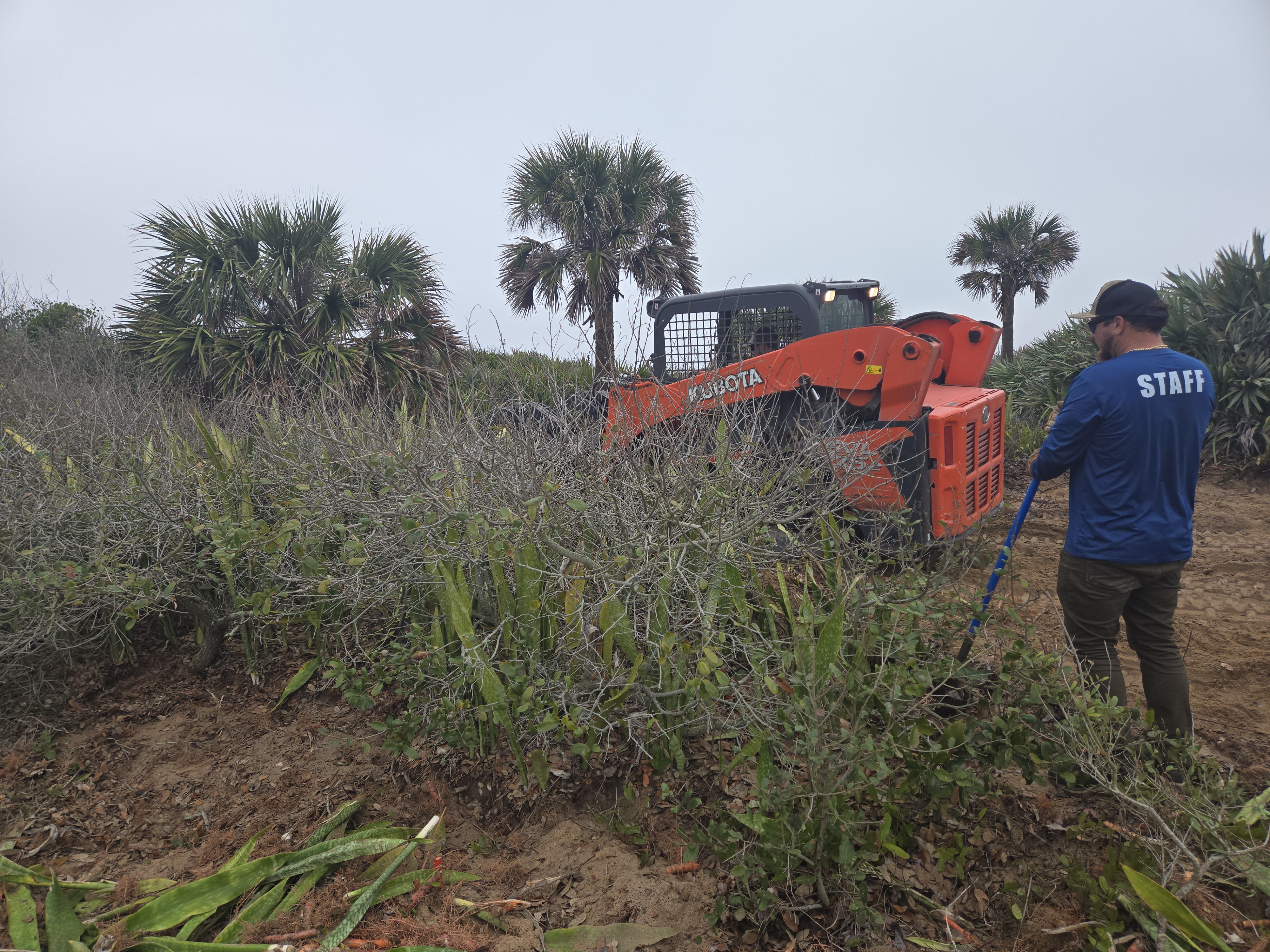What You Need to Know
Artificial lighting, especially at night, can disrupt local wildlife, particularly sea turtles and other nocturnal or migrating animals. In Florida, it's crucial to minimize light pollution to protect these species.
Wildlife-Friendly Lighting
Sea turtles and other wildlife are especially sensitive to artificial lights. Bright lights can disorient hatchlings and nesting mothers, leading them away from the ocean. To help:
- Close Blinds or Curtains: To reduce light pollution, turn off lights, and close blinds or curtains in your beachfront properties during the nesting season (March 1 - October 31) between 9 p.m. and 7 a.m.
- Use Turtle-Friendly Lighting: Install turtle-friendly lighting fixtures or retrofit existing ones with shields to direct light away from the beach. Turtle-safe lighting is a small change that makes a big difference. FWC Certified Wildlife Lighting
- Share the Message: Educate your family, friends, and guests about the importance of sea turtle conservation and proper lighting practices. The more people understand, the more we can protect our sea turtle neighbors.
Local Regulations:
City of Satellite Beach Ordinance: Ordinance: Chapter 26, Article X– Sea Turtle Nesting & Lighting Regulations
Brevard County Ordinance: Chapter 46, Article III – Marine Turtle Protection
Key Rules:
-
No visible lights on the beach at night during nesting season – this includes white, amber, and red lights.
-
Shield or turn off outdoor lighting so it cannot be seen from the beach.
-
Close blinds or curtains on ocean-facing windows at night.
-
No flashlights, flash photography, or fires on the beach during nesting season.
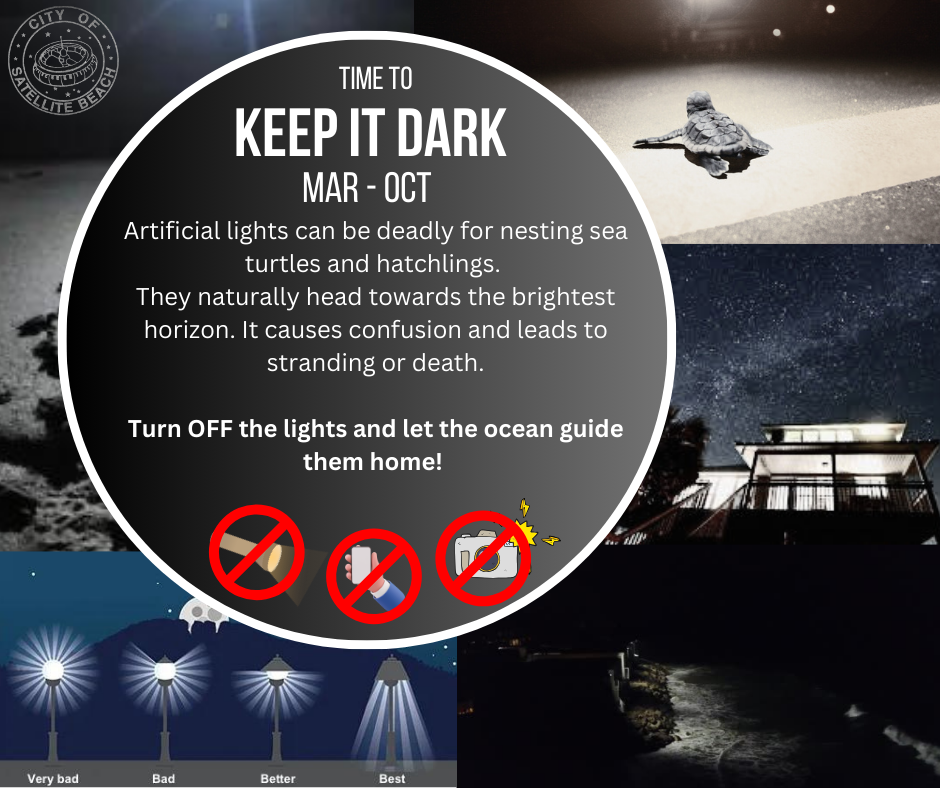
The City’s Sea Turtle Lighting Program includes public education and lighting surveys, with funding for the 2025–2026 program year provided by the Sea Turtle Grants Program.
